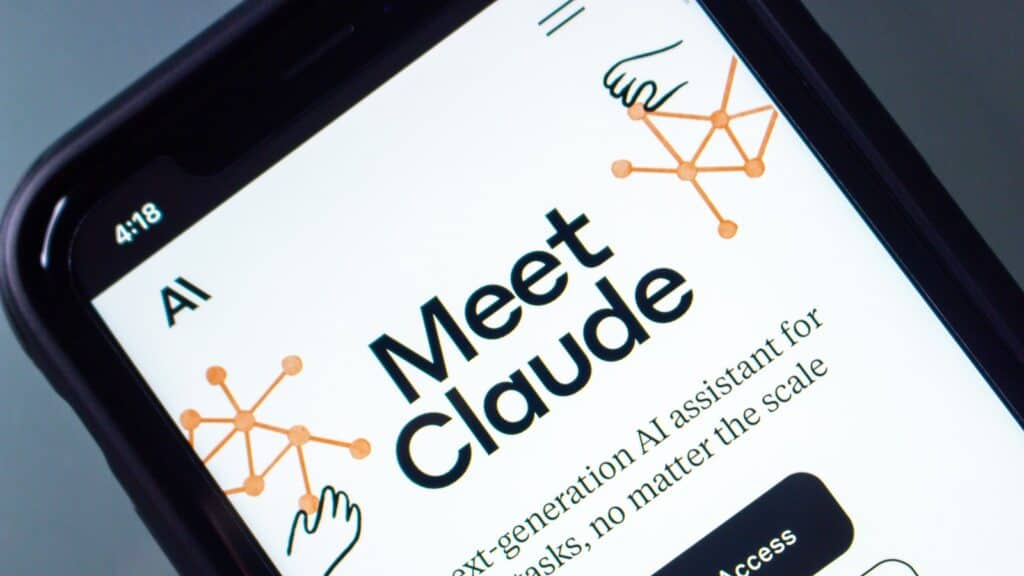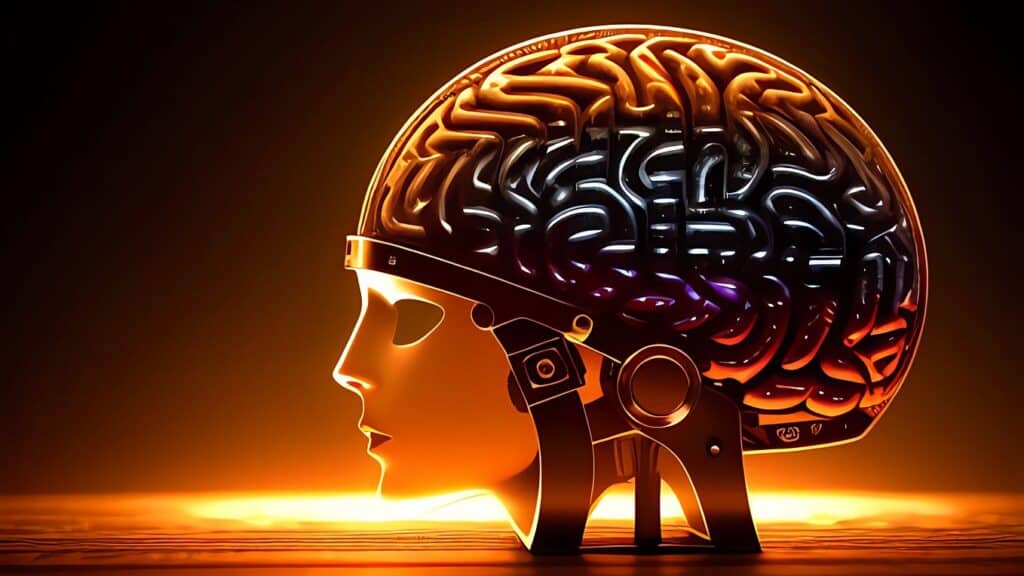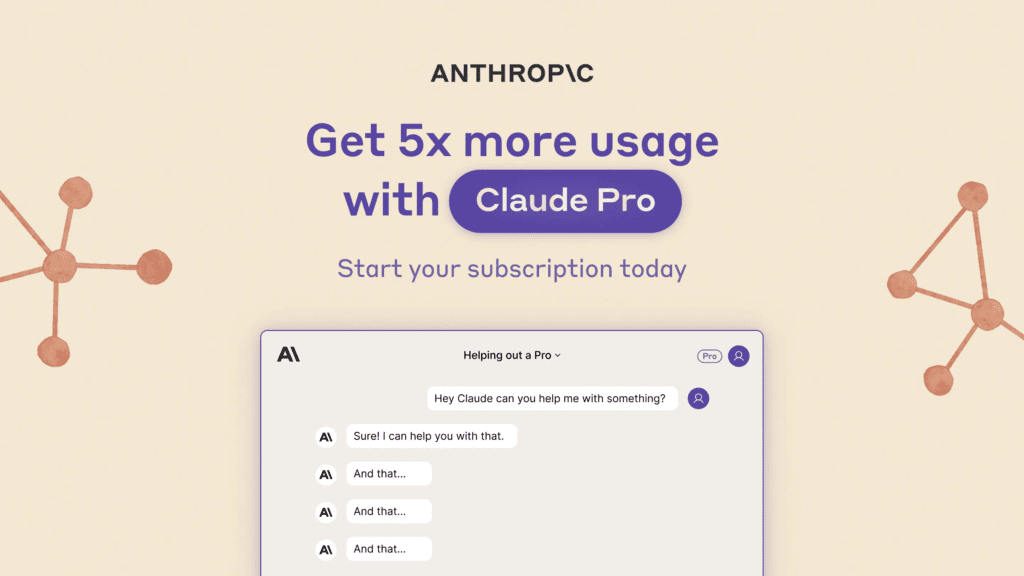Artificial intelligence (AI) has seen massive advances in recent years, with systems like OpenAI’s ChatGPT demonstrating just how capable AI language models have become.
However, concerns remain around bias, safety, and misuse of these powerful models. Enter Claude, the new AI chat assistant created by AI startup Anthropic.
Claude AI chat offers cutting-edge conversational artificial intelligence that is not only highly intelligent but also designed to be harmless and honest.
In this blog post, I explore and compare whether Claude represents the next evolution of AI chatbots and if it can deliver on its promises of being an AI that is smarter, safer, and more beneficial than alternatives like ChatGPT.
What is Claude and Who Created It?
Claude is an AI assistant chatbot launched by AI startup Anthropic in early 2023. Anthropic was founded in 2021 by former OpenAI researchers Dario Amodei and Daniela Amodei, with a mission to develop artificial general intelligence that is safe, beneficial, and honest.
Claude is their first product – a natural language conversational AI assistant trained using a technique Anthropic calls Constitutional AI.
The key promise of Claude is that it will be significantly smarter than existing chatbots like ChatGPT, while also being safer, more trustworthy, and designed to be helpful.
Anthropic claims Claude is the first AI system designed to be harmless, honest, and harmless from the ground up.

How Does Claude Work?
Claude is based on a large language model similar to GPT-4. However, Anthropic says there are key differences in how Claude has been trained compared to other conversational AI systems:
- Constitutional AI – Claude uses a novel technique called Constitutional AI, where the model is trained to be helpful, harmless, and honest by aligning its values with the Universal Declaration of Human Rights. This is meant to make Claude friendlier and more beneficial.
- Larger context window – Claude has been trained using a larger context window than ChatGPT, allowing it to have more conversational memory and consistency.
- Recent data – Claude has been trained on more recent data compared to existing systems like ChatGPT, so it has more up-to-date knowledge.
- Harmful content filtering – Anthropic has developed methods to filter out harmful content from Claude’s training data. This is meant to avoid biases and toxicity.
In terms of capabilities, Claude offers features like summarization, open-ended dialog, and answering natural language questions. It also has access to limited common sense knowledge about the world to aid its conversational abilities.
ChatGPT vs Claude 2: Capabilities
Let us look at the capabilities of ChatGPT and Claude.
ChatGPT Capabilities
Here are the capabilities of the ChatGPT model.
- ChatGPT Plus provides access to API support and ChatGPT Plugins.
- Supports more than 80 languages.
- Can understand text inputs, analyze images and describe what is depicted in the images.
- Can answer queries related to any field of study. It has mastery in all the fields.
- Cracks dad jokes which are funny enough to make the user smile.
- Cracked most of the standardized examinations.
- Does not respond easily to restricted texts.
- It has a huge ecosystem of plugins that allows you to extend functionalities to web browsing, drawing, creating documents, SEO and much more.
Claude 2: Capabilities
Here are the capabilities of Clade AI Chatbot.
- Claud earned a marginal pass on the blind-graded test.
- Supported languages: English, Spanish, and French, with more upcoming languages.
- Claude 2 has a token limit of 100,000 tokens, so input prompts can be really big.
- It can have open-ended conversations, tell jokes, and discuss various subjects.
- It can write fictional stories, Poems, and other creative writings.
- Claude can answer queries more precisely compared to ChatGPT, significantly in the fields of entertainment, history, geography, and the basics of algebra.
- Sticks to its ethical principles, which makes it useful in industries like education, healthcare, and finance, where it needs to operate ethically.
- Declines inappropriate requests frequently.
- The writing style of the chatbot is more detailed and accurate.
ChatGPT vs Claude 2: Pricing
ChatGPT is available for free (with some limitations), but the free version uses GPT-3.5 technology. Therefore, if you need access to GPT-4, ChatGPT plugins, code interpreter, etc., you must purchase ChatGPT Plus. This ChatGPT Plus will cost you $20 monthly.
On the other hand, Anthropic Claude is free to use (with limitations as well) and can be used by anyone in the United States and the United Kingdom. They recently launched the Pro plan which costs $20 monthly.
The benefits of the Claude Pro plan are:
- 5x more usage than our free tier provides, with the ability to send many more messages in short periods of time
- Priority access to Claude.ai during high-traffic periods
- Early access to new features that help you get the most out of Claude
ChatGPT vs Claude 2: Limitations
Let’s review the limitations of ChatGPT and Claude AI, including the areas where they have room for improvements.
ChatGPT Limitations
The limitations of ChatGPT are as follows.
- ChatGPT still hallucinates factual information.
- Temporarily does not have access to web browsing and cannot provide real-time data. However, you can use plugins for web browsing, so don’t worry.
- It cannot explain the logic in detail. It only provides answers in only one line to the logical questions.
Claude 2: Limitations
Here are the limitations of Claude’s AI chatbot:
- Claude is weaker in complex mathematics when compared to ChatGPT.
- Does not have access to the internet.
- Claude also has the significance of generating inconsistent and false statements.

Is Claude Really Smarter and Safer Than ChatGPT?
Anthropic claims that Claude represents a significant advance over existing conversational AI systems like ChatGPT in terms of intelligence, safety, and capabilities.
The Claude 2 model is more advanced in coding, math, and reasoning than its predecessor, Claude 1.3.
But does the reality live up to the hype? A few key data points help assess whether Claude meets its promises:
- In head-to-head comparisons, Claude 2 scored 76.5% on a Python coding test, compared to ChatGPT’s 72%. This suggests Claude has stronger reasoning abilities.
- Claude 2 still lags behind human performance, scoring 45% on the multiple choice section of the US and UK bar exam, versus humans’ 66%. So Claude is not yet human-level intelligent.
- In Anthropic’s safety assessments, Claude produces fewer harmful or unethical responses compared to GPT-3/4 and OpenAI’s safety-filtered model. This indicates Claude better uphold human rights principles.
- The token size of Claude has dramatically increased from 9000 to 100,000 tokens in Claude 2, far higher than GPT-4’s 32k. Presently it can read and process 100,000 tokens which equals approximately 75,000 words. And this, just within a single prompt.
So, while Claude does not appear to be a true artificial general intelligence yet, the data does indicate it represents meaningful progress in AI capabilities and safety techniques.
Anthropic themselves acknowledge Claude still has major limitations in areas like logical reasoning and searching the web.

Should Businesses Use Claude?
For businesses considering using Claude, I will recommend evaluating some key factors:
- Claude offers strong language and conversation abilities that can be useful for customer service chatbots or helping employees answer questions.
- The focus on safety and beneficial AI could help reduce risks around harmful errors or biases.
- Claude’s API access is currently limited to selected partners, whereas ChatGPT is openly available. But Anthropic plans wider access.
- Claude Pro plan is already available at $20 per month, so businesses can leverage the advantages of the paid plan.
- As an early system, Claude likely still has reliability gaps and won’t replace human roles that need complex reasoning.
Claude does appear a promising AI assistant for early adopters, but businesses will need to assess the expected benefits versus its current limitations. But as Claude matures, its advanced intelligence and safety capabilities could make it a leader in the AI chatbot space.
Key Takeaways
- ChatGPT and Claude 2 have extraordinary abilities and can help humans make some tasks easier.
- ChatGPT gets an edge over Claude 2 due to the code interpreter, plugins and more supported languages.
- Claude 2 is a winner regarding performance, more accurate natural results, and safety. Techniques like Constitutional AI, safety screening, and massive training power give Claude advantages over ChatGPT.
- Claude is still narrow in its capabilities compared to general intelligence, with gaps in reasoning abilities.
- Claude points toward a future where AI assistants could be carefully designed to align with human values and principles.
I’m glad if you found some useful information in this article regarding these two powerful AI technologies, that can simplify your life and work.
Happy prompting!

Frequently Asked Questions (FAQ)
Q: What is Claude.AI?
ℹ️ A: Claude AI is an artificial intelligence assistant that is known for being smarter than ChatGPT, a popular chatbot and language model.
Q: What is the difference between Claude AI and ChatGPT?
ℹ️ A: Claude AI is a better version of Claude, offering improved capabilities compared to its previous version (Claude 1.3). It is also more advanced than ChatGPT in terms of its model and performance.
Q: How does Claude AI work?
ℹ️ A: Claude AI is powered by an advanced generative AI platform developed by the company, Anthropic. It uses cutting-edge artificial intelligence techniques to understand and respond to user queries and prompts.
Q: Can Claude AI summarize long pieces of text?
ℹ️ A: Yes, Claude AI has the ability to summarize text and provide concise and accurate summaries of long pieces of content.
Q: Can Claude AI answer specific queries?
ℹ️ A: Yes, Claude AI is designed to handle queries and provide relevant responses based on the input it receives. It can effectively answer specific questions.
Q: Can I use Claude AI without a login?
ℹ️ A: No, you have to register and log in with an account to access Claude AI.
Q: What is Claude Instant?
ℹ️ A: Claude Instant refers to the quick and immediate access to Claude AI’s functionalities. It allows users to interact with Claude AI without any delays or waiting times.
Q: Can Claude AI outperform GPT-4 from OpenAI?
ℹ️ A: Yes, Claude AI, developed by Anthropic, is known to be superior to OpenAI’s GPT-4 in terms of its model’s performance and capabilities.
Q: How is Claude 2 AI better than ChatGPT?
ℹ️ A: Claude AI, being an advanced version of Claude, offers significant improvements in terms of its generative AI capabilities and the quality of its responses compared to its previous version (Claude 1.3) and ChatGPT.
Q: Can Claude AI search the web?
ℹ️ A: No, Claude AI can’t search the web. It focuses on providing intelligent responses and generating content based on the input it receives.
Q. Is Claude secure with my enterprise data?
ℹ️ A: Yes, Claude uses industry-standard best practices for data handling and retention. All commercial deployments are covered by Anthropic’s Data Protection Addendum, which is available upon request.
Q. How does the API work?
ℹ️ A: Anthropic’s API is designed to be a backend that incorporates Claude into any application you’ve developed. Your application sends text to its API, then receives a response via server-sent events, a streaming protocol for the web. They have API documentation with drop-in example code in Python and Typescript to get you started.
Q. What versions of Claude are available?
ℹ️ A: Anthropic currently offers two versions of Claude. Claude – their most powerful model, which excels at a wide range of tasks from sophisticated dialogue and creative content generation to detailed instruction following.
Claude Instant – a faster and cheaper yet still very capable model, which can handle a range of tasks including casual dialogue, text analysis, summarization, and document question-answering.
Q. What is the Claude’s pricing?
ℹ️ A: You can find their model pricing here.
Q. What languages does Claude support?
ℹ️ A: Claude has the most training in English, but also performs well in a range of other common languages like Spanish and French, and more languages will be supported soon. Claude also has extensive knowledge of common programming languages!
Q. What does constitutional training do?
ℹ️ A: Constitutional training is a process for training a model to adhere to a “constitution” of desired behavior. The core Anthropic model has been finetuned with constitutional training with the goal of becoming helpful, honest, and harmless.
You can learn more about constitutional training here.
Q. What does “HHH” mean?
ℹ️ A: Helpful, Honest, and Harmless (HHH) are three components of building AI systems (like Claude) that are aligned with people’s interests. While no existing model is close to perfection on HHH, we are pushing the research frontier in this area and expect to continue to improve.
For more information about how they evaluate HHH in the models, you can read the paper here.
Q. How do you further customize Claudeʼs behavior?
ℹ️ A: Claude’s behavior can be extensively modified using prompting. Prompts can be used to explain the desired role, task, and background knowledge, as well as a few examples of desired responses. You can read more about prompt design here.
Q. Can Claude models be finetuned?
ℹ️ A: In the vast majority of cases, they believe well-crafted prompts will get you the results you want without the expense or delay of fine-tuning. However, some large enterprise users may significantly benefit from fine-tuned models.
Q. How long is Claudeʼs context window?
ℹ️ A: The combined context window for input and output is about 100,000 tokens, which works out to roughly 75,000 words, depending on the type of content.
Q. Can Claude do embeddings?
ℹ️ A: Not at this time! They find the open-source SBERT embeddings to be good enough for most purposes.





